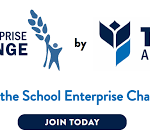The World Bank has announced plans to deploy up to $14 billion by 2030 to strengthen global agribusiness through a new initiative called AgriConnect. The programme, unveiled during the World Bank Group–IMF Annual Meetings under the theme “From Sectors to Systems: Building Job-Rich Economies at Scale”, seeks to transform smallholder farming from subsistence to profit-oriented enterprise, while creating millions of jobs and revitalising rural economies in developing countries.
According to the Bank, the initiative represents a strategic shift from funding isolated agricultural projects to building interconnected economic ecosystems that can deliver sustained job creation and inclusive growth. World Bank President Ajay Banga described AgriConnect as part of the institution’s renewed focus on “jobs, growth, and impact at scale.”
“We’ve set a target to double our agribusiness commitments to $9 billion annually by 2030, aiming to mobilise an additional $5 billion,” Banga said at the launch event, AgriConnect: Farms, Firms, and Finance for Jobs. “This is grounded in what we’ve tested in the field and in lessons borrowed from others. Steal shamelessly and share seamlessly; that is how we succeed together.”
The World Bank estimates that family farms, including over 500 million smallholders, produce about 80 per cent of the world’s food but often struggle with limited access to markets, finance, and modern technology. AgriConnect aims to close these gaps by rallying governments, private investors, and donor partners to invest in infrastructure, digital technology, and policy reforms that can boost productivity and integrate farmers into value chains.
By facilitating access to finance and innovation, the programme hopes to make agriculture a powerful engine for employment, especially in low- and middle-income countries where rural livelihoods remain fragile.
Banga highlighted that agriculture’s vast potential to absorb labour makes it critical to the global jobs agenda, particularly as over one billion young people are projected to enter the workforce within the next decade. “Jobs remain the most reliable route out of poverty,” he said. “They provide dignity, stability, and hope. Through AgriConnect, we are connecting the dots between farms, firms, and finance to deliver those opportunities at scale.”
The World Bank’s Development Committee, representing its 189 member countries, also reaffirmed its commitment to a more agile and impactful institution capable of delivering results efficiently. Discussions at the Annual Meetings focused on how to build job-rich economies, with participation from policymakers, civil society, and private-sector leaders.
The event’s Leaders’ Speaker Series featured contributions from Dr. Mona Mourshed, CEO of Generation, and Dr. Rania Al-Mashat, Egypt’s Minister of Planning and International Cooperation, who discussed how education, innovation, and policy alignment can accelerate job creation.
The launch of AgriConnect rounded off a week of global dialogue that underscored collaboration, trust, and shared purpose as key to achieving sustainable development and inclusive economic transformation.










